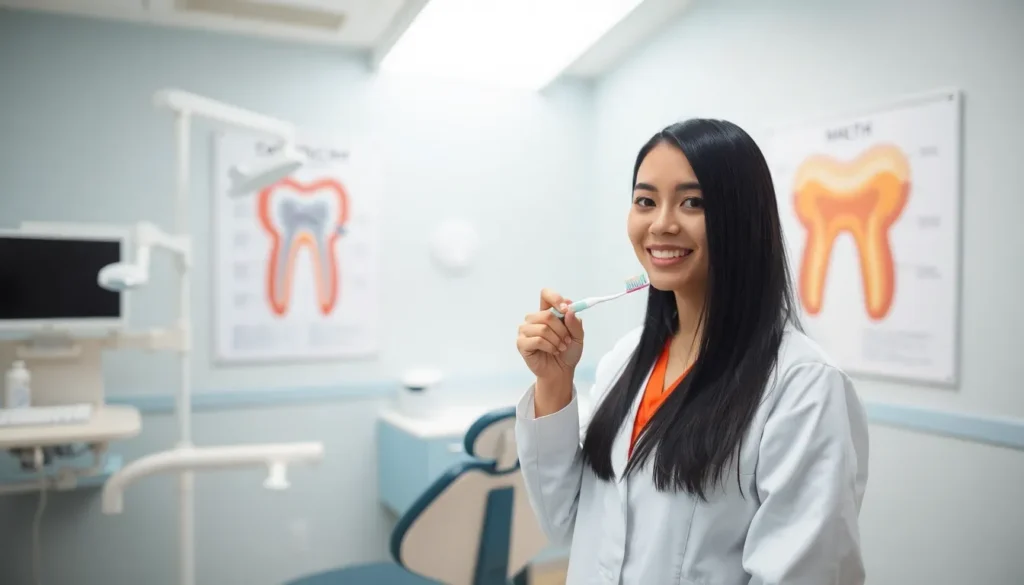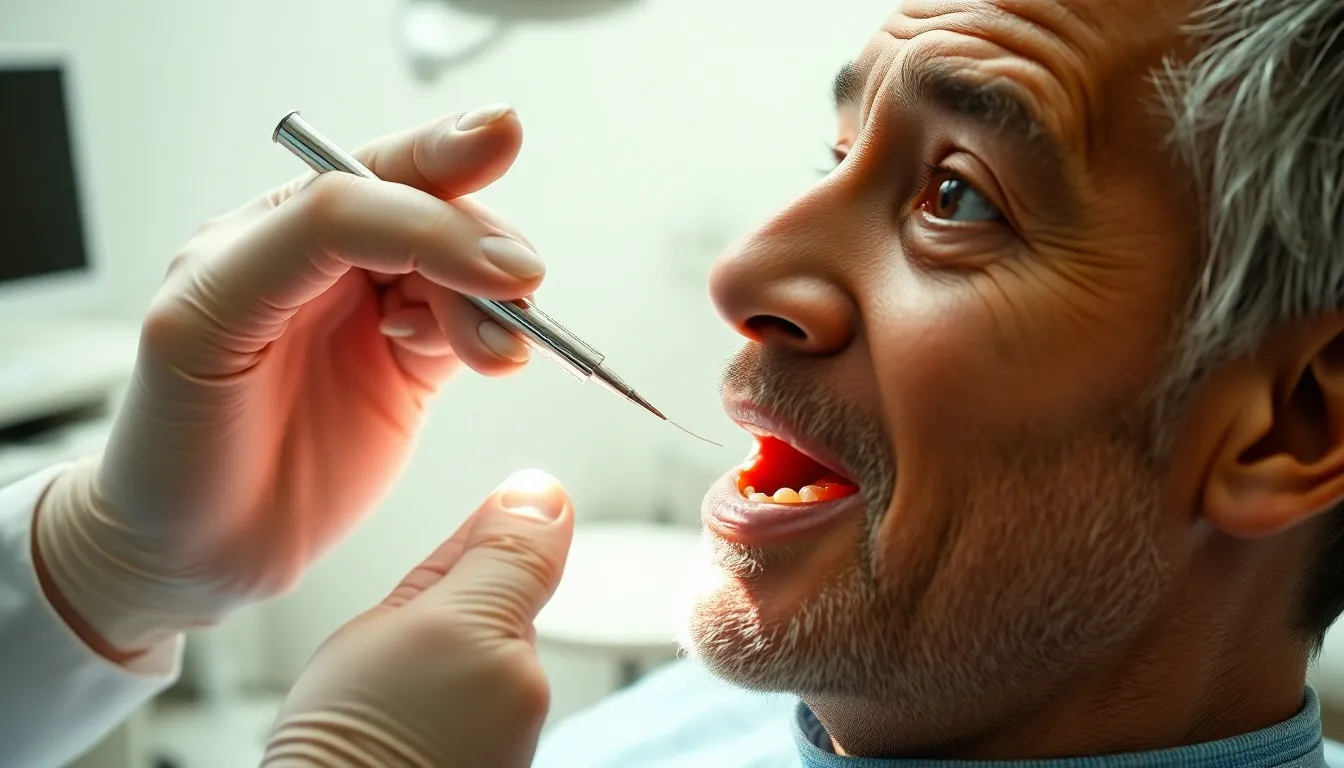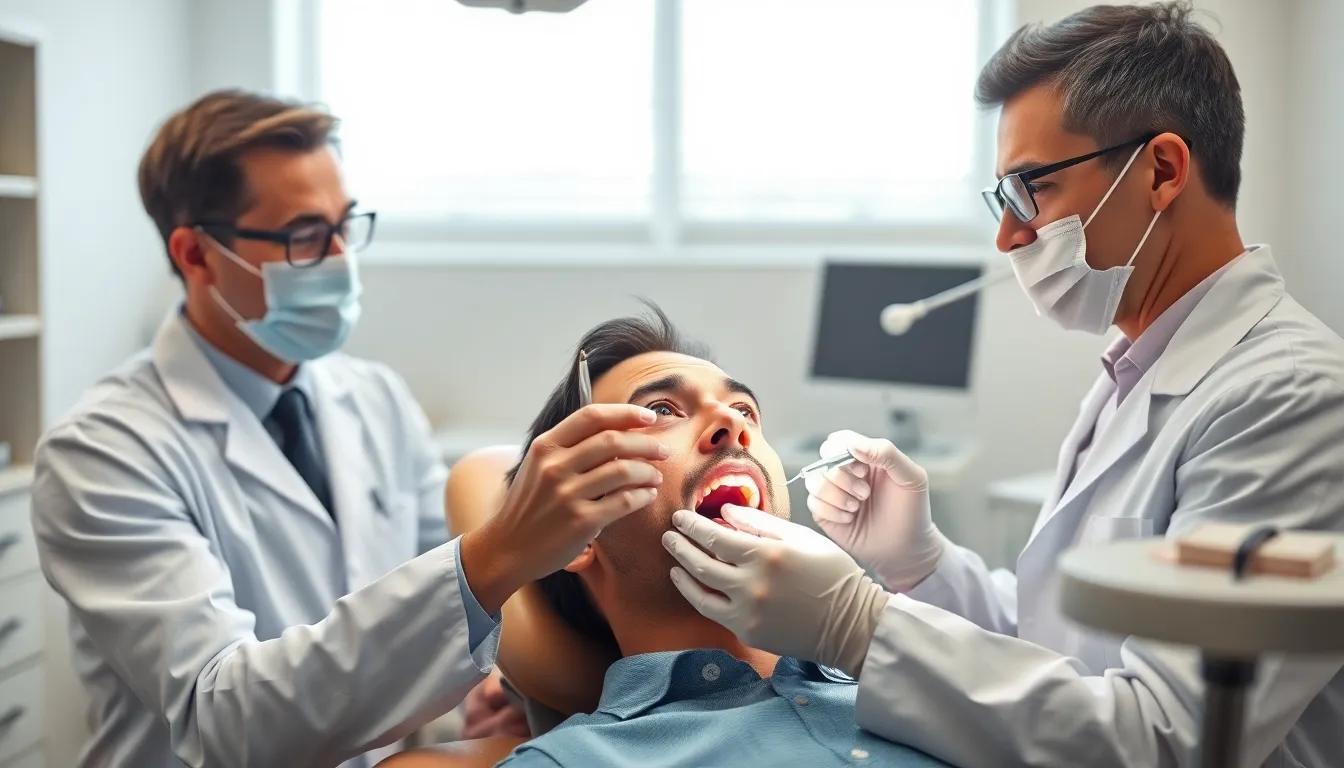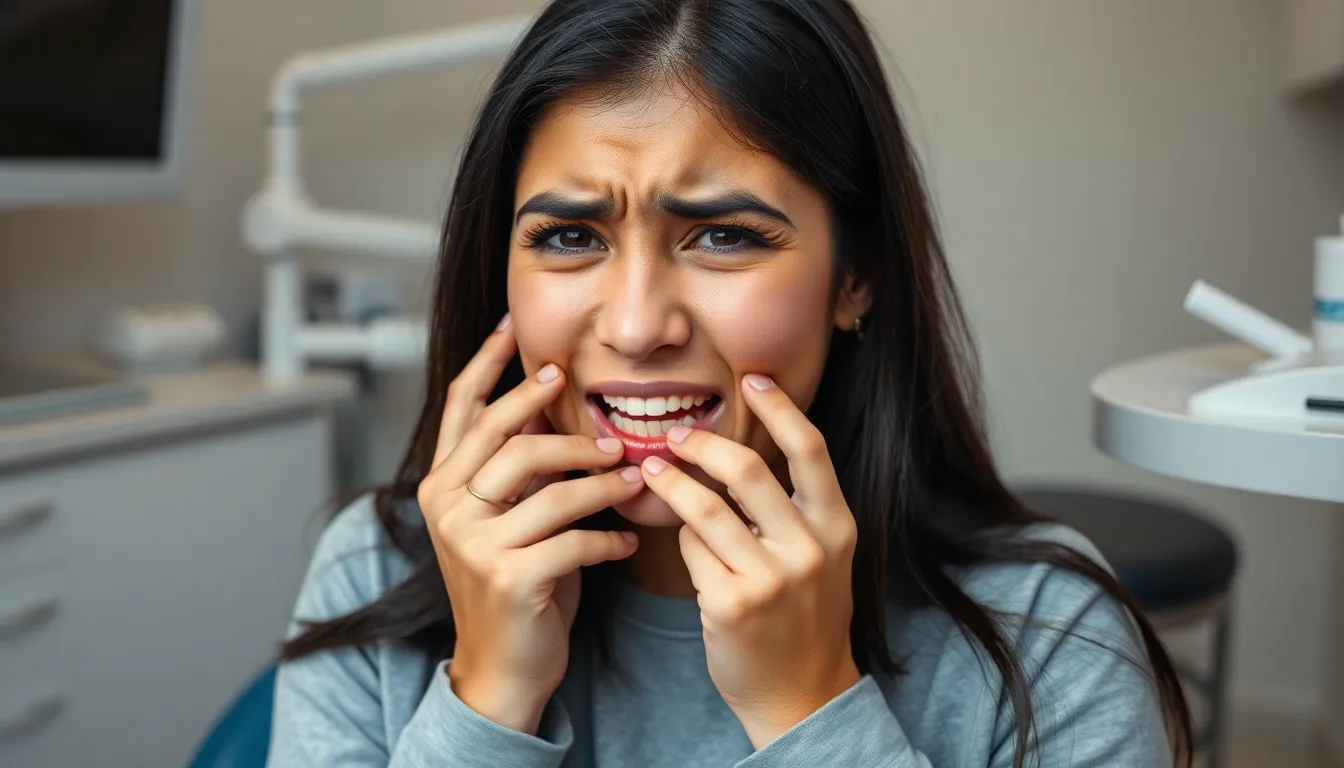Are you concerned about how to prevent teeth from chipping? A chipped tooth can happen unexpectedly—biting down on something hard, taking a fall, or even grinding your teeth at night can lead to this common dental problem.
Protecting your teeth from chips and cracks isn’t just about maintaining your smile’s appearance; it’s crucial for your overall oral health. When enamel is damaged, it exposes the sensitive inner layers of your teeth to potential infection and decay. Fortunately, with the right preventive measures and daily habits, you can significantly reduce your risk of experiencing this painful dental issue.
Understanding Why Teeth Chip
Teeth chip when excessive force overcomes the natural strength of tooth enamel. Dental enamel, the hardest substance in your body, still has limitations that make it susceptible to damage under certain conditions.
Common Causes of Chipped Teeth
Biting hard objects commonly leads to chipped teeth, with ice, hard candy, and unpopped popcorn kernels being frequent culprits. Sports injuries account for nearly 40% of dental trauma cases, especially in contact sports like basketball, hockey, and football. Unexpected impacts from falls or accidents can create sudden force against teeth, resulting in chips or fractures. Teeth grinding (bruxism) gradually weakens enamel through constant pressure, making teeth more prone to chipping over time. Using teeth as tools—opening packages, cutting thread, or removing bottle caps—applies inappropriate force that teeth aren’t designed to handle.
Dr. Harris recalls, “I once treated a patient who chipped her front tooth while eating a salad. She bit down on an unexpected olive pit, and heard a crack. This demonstrates how everyday activities can sometimes lead to dental emergencies when we least expect them.”
Risk Factors That Make Teeth Vulnerable
Poor dental hygiene creates vulnerable teeth by allowing decay to weaken enamel structure from within. Acidic foods and beverages—citrus fruits, sodas, sports drinks, and wine—erode enamel over time, making it thinner and more susceptible to chipping. Tooth decay and cavities compromise structural integrity by creating weak spots that can easily break under pressure. Previous dental work, including large fillings, can weaken remaining tooth structure and create pressure points that increase fracture risk. Age-related factors contribute significantly as enamel naturally thins over decades of use, with teeth becoming 30% more brittle after age 50. Certain medications, particularly those causing dry mouth, reduce protective saliva flow that naturally remineralizes and strengthens teeth.
Structural abnormalities like misaligned teeth create uneven bite forces, concentrating pressure on exact teeth and making them more likely to chip. Nutritional deficiencies, especially inadequate calcium and vitamin D, compromise enamel strength and resilience against external forces.
Daily Habits to Protect Your Teeth

Developing consistent dental care habits forms the foundation for preventing chipped teeth. Your daily choices significantly impact tooth strength and durability, especially when it comes to what you chew and how you use your teeth.
Chew Only Food
Restrict chewing to food items only, as non-food objects pose serious risks to dental integrity. Pens, ice, hard candy, popcorn kernels, fingernails, and bones all exert excessive force on tooth enamel, potentially causing chips or fractures. Dr. Harris recalls a patient who developed a habit of chewing pen caps during stressful work meetings, resulting in a chipped molar that required extensive restoration work.
Biting down on hard objects creates pressure points that can exceed enamel’s natural strength threshold. Many patients express surprise when learning that seemingly harmless habits like ice chewing can damage teeth, yet these behaviors account for many preventable dental emergencies.
Avoid Using Teeth as Tools
Your teeth aren’t designed as substitutes for proper tools, regardless of convenience. Opening packages, bottles, or containers with your teeth concentrates extreme force on small areas of enamel, creating perfect conditions for chips to occur. This misuse of teeth ranks among the most common causes of dental fractures seen in emergency appointments.
Keeping appropriate tools handy at home, in your car, and at work eliminates the temptation to use teeth as impromptu openers. Simple steps like storing scissors in accessible locations can protect your smile from unnecessary damage.
Wear Protective Gear
Sports participation requires proper mouth protection through custom-fitted or store-bought mouthguards. Athletes who play contact sports face significantly higher risks of dental trauma, with basketball, hockey, and soccer generating many dental injuries annually. Mouthguards distribute impact forces across all teeth rather than concentrating them on vulnerable front teeth.
Night guards also provide essential protection for those who grind or clench their teeth during sleep. These custom-fitted devices create a barrier between upper and lower teeth, preventing the excessive forces that lead to chips, cracks, and accelerated wear.
Maintain a Healthy Diet
Consuming nutrient-rich foods strengthens teeth from within while avoiding harmful options that compromise enamel integrity. Calcium and vitamin D from dairy products, leafy greens, and fortified foods directly contribute to dental strength. Phosphorus found in eggs, fish, and lean meats also plays a crucial role in maintaining enamel hardness.
Proper Brushing and Flossing Techniques
Brushing at least twice daily with a soft-bristled toothbrush removes plaque without damaging enamel. Hard bristles and aggressive brushing techniques actually erode enamel over time, making teeth more susceptible to chipping. Circular, gentle motions prove most effective at cleaning while preserving enamel integrity.
Fluoride toothpaste provides essential protection by remineralizing weak spots in enamel before they develop into vulnerable areas. Consistent application through regular brushing creates a stronger outer surface that resists chipping forces more effectively.
Flossing removes interproximal plaque that brushing alone can’t reach, preventing decay that weakens overall tooth structure. Weakened areas from decay create structural vulnerabilities that increase chipping risk, even from normal biting forces. Daily flossing, while often overlooked, represents a critical component of chip prevention.
Regular dental check-ups allow professionals to identify early signs of wear, grinding, or decay that increase chipping risk. Professional cleanings remove hardened calculus that brushing can’t address, maintaining optimal enamel health.
Foods and Drinks to Avoid
Sugar consumption feeds harmful oral bacteria that produce enamel-eroding acids. These acids gradually weaken tooth structure, making teeth more susceptible to chipping from normal forces. Limiting sugary snacks and beverages creates a less acidic oral environment where enamel can maintain its natural strength.
Highly acidic foods and beverages directly attack enamel through chemical erosion. Citrus fruits, sodas, sports drinks, and some fruit juices repeatedly expose teeth to acids that soften enamel and reduce its natural repair capabilities. Dr. Harris notes that some patients who drink lemon water throughout the day develop significantly weakened enamel along their front teeth, creating perfect conditions for chipping.
Hard, crunchy foods pose direct physical threats to dental integrity. Ice, hard candies, unpopped popcorn kernels, and certain nuts create concentrated force points that exceed enamel’s strength limitations. These foods account for many emergency dental visits for chipped teeth, particularly when bitten incorrectly or unexpectedly.
Protective Measures During Physical Activities

Physical activities significantly increase the risk of dental injuries, making protective measures essential for maintaining healthy, unbroken teeth. Implementing exact safeguards during sports and active recreation can prevent painful chips and fractures that might require extensive dental work.
Choosing the Right Mouthguard
Mouthguards serve as a critical defense against dental trauma during physical activities. Custom-fitted mouthguards offer superior protection because they’re molded precisely to your dental structure, providing optimal comfort and shock absorption during impacts. Boil-and-bite options, available at most sporting goods stores, create a reasonable fit by softening in hot water and molding to your teeth when you bite down. Stock mouthguards provide basic protection but lack the personalized fit that ensures both comfort and maximum safety.
Dr. Harris notes, “I’ve seen countless sports injuries that could have been prevented with a proper mouthguard. One high school basketball player came in with three fractured front teeth after taking an elbow to the face during a game. Had he been wearing a custom mouthguard, we might have been discussing a bruised lip instead of extensive dental reconstruction.”
The effectiveness of your mouthguard depends on proper fit and material quality. Custom-fitted guards from your dentist offer 3-4 times more protection than over-the-counter alternatives, though they typically cost $300-500 compared to $10-30 for store-bought versions. For recreational athletes, boil-and-bite guards provide a reasonable middle ground between protection and affordability.
Sports That Require Extra Protection
Contact sports present the highest risk for dental injuries, demanding enhanced protective measures. Football, hockey, basketball, and boxing top the list of activities where mouthguards should be considered mandatory equipment rather than optional gear. Martial arts participants face similar risks, with studies showing that combat sports athletes without mouthguards are 7 times more likely to experience dental trauma.
Even seemingly low-impact activities like skateboarding, mountain biking, and gymnastics carry important dental injury risks due to potential falls and collisions. Baseball and softball players, particularly infielders and catchers who face hard-hit balls, benefit substantially from specialized face masks with built-in mouth protection.
“Many patients don’t realize that even recreational sports pose risks,” explains Dr. Harris. “A patient who played weekend soccer came in with a chipped incisor after colliding with another player. She hadn’t considered wearing a mouthguard for a ‘casual’ game, but now she never plays without one.”
Basketball players experience dental injuries more frequently than football players even though football’s reputation as a more physical sport. The difference stems from mouthguard requirements—football mandates their use while basketball typically doesn’t, highlighting how protective equipment dramatically reduces injury rates regardless of the sport’s intensity level.
Addressing Teeth Grinding and Clenching
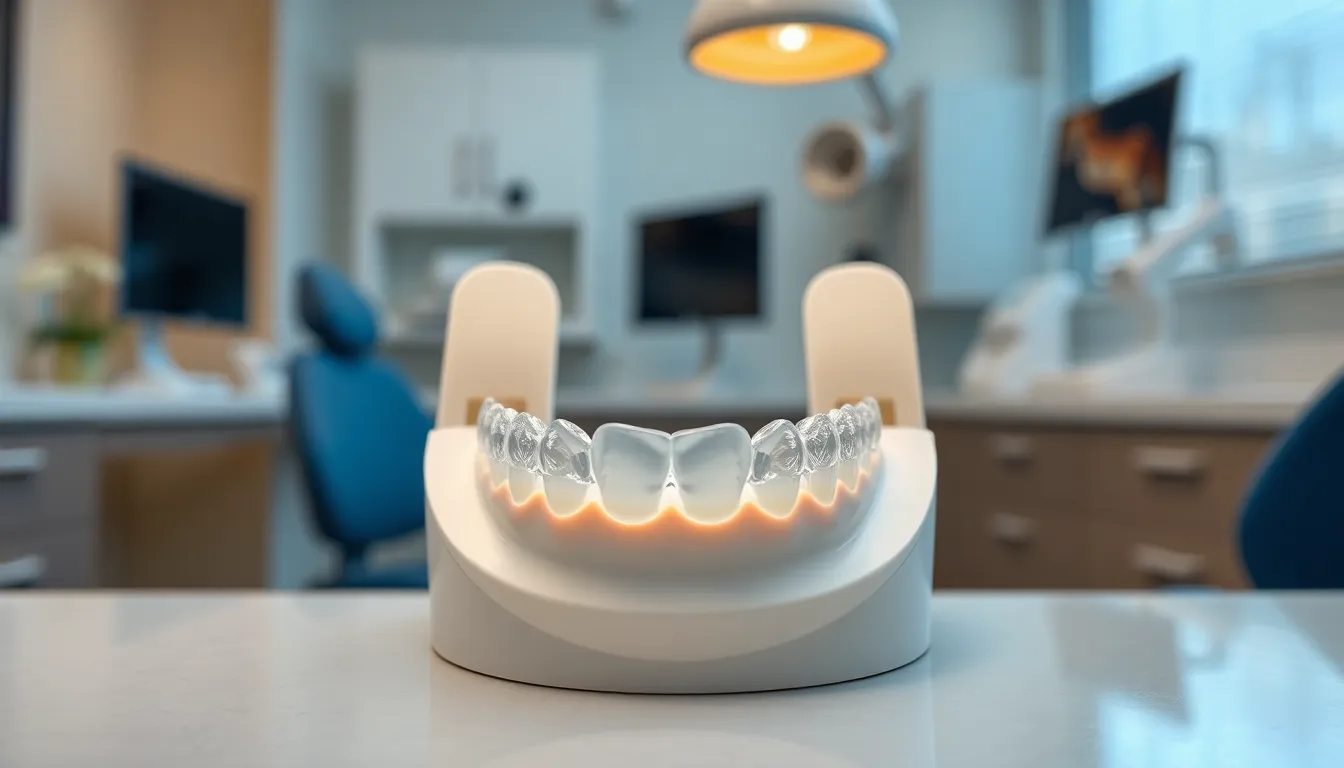
Teeth grinding and clenching (bruxism) is a common habit that puts excessive pressure on your teeth, significantly increasing the risk of chips and fractures. Using a custom-fitted nightguard protects your teeth from this pressure during sleep, creating a protective barrier between your upper and lower teeth.
Nighttime Answers for Bruxism
Custom night guards or splints offer the most effective protection against nighttime grinding damage. These dental devices are designed to fit your unique dental structure, cushioning your teeth from the forceful impact of grinding. Regular dental checkups allow your dentist to monitor wear patterns from bruxism and make adjustments to your protective devices as needed. Dr. Harris recalls a patient who ignored his grinding habit for years: “By the time Tom came to see me, he had already chipped three molars from severe nighttime grinding. After fitting him with a custom night guard, we prevented further damage and helped preserve his remaining tooth structure.”
Stress Management Techniques
Stress serves as a major trigger for teeth grinding, making stress reduction techniques essential in your prevention strategy. Meditation, deep breathing exercises, and regular physical activity can all lower your overall stress levels, directly reducing grinding frequency. Behavioral therapy helps you become aware of daytime jaw clenching habits that you might not notice. Cognitive therapy techniques teach you to recognize stress triggers and develop healthier responses that don’t involve clenching your jaw. Many patients find that combining protective devices with stress management provides more comprehensive protection than either approach alone.
Professional Dental Care for Prevention
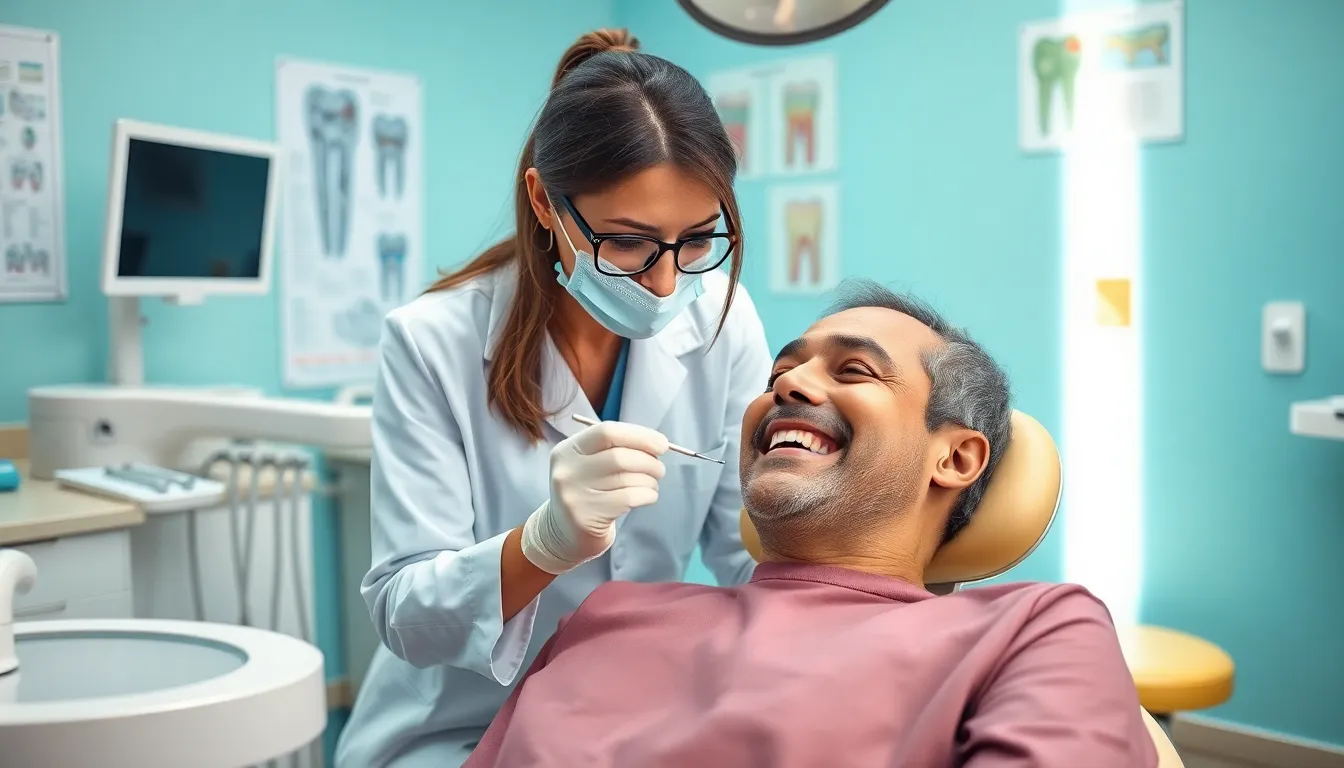
Professional dental care forms the cornerstone of preventing chipped teeth. Regular visits to your dentist provide essential preventive measures that home care alone can’t deliver. These professional interventions identify potential problems before they lead to dental emergencies.
Regular Check-ups and Cleanings
Routine dental visits detect weakened enamel, early decay, or small cracks that predispose teeth to chipping. During these appointments, your dentist examines your teeth thoroughly and takes X-rays to assess their structural integrity, catching issues invisible to the naked eye. Professional cleanings remove stubborn plaque buildup that gradually erodes enamel, preserving your teeth’s natural resilience against chips and fractures. Many patients don’t realize that skipping just one cleaning can significantly increase their risk of enamel damage.
Dr. Harris recalls a patient who avoided dental visits for three years due to anxiety: “When she finally came in, we discovered multiple teeth with weakened enamel that could have easily chipped during normal eating. After restoring these areas and getting her back on a regular cleaning schedule, her teeth regained their strength and stability.”
Dental Treatments That Strengthen Teeth
Dentists offer several treatments specifically designed to reinforce teeth showing signs of weakness. Dental bonding applies tooth-colored resin to vulnerable areas, not only improving appearance but creating a protective barrier against further damage. Veneers serve a similar purpose for front teeth, shielding them from acids and bacteria while providing aesthetic benefits.
For teeth with more important weakening, crowns offer comprehensive protection by completely covering the tooth with a durable material that prevents further cracking or chipping. Your dentist might recommend fillings or root canals when decay threatens tooth structure, addressing the underlying cause of weakness before it leads to a chip.
These professional interventions complement your daily oral hygiene routine, creating a comprehensive approach to chip prevention. Dental professionals can customize treatment plans based on your exact risk factors, addressing unique concerns such as thin enamel, misalignment, or previous dental work that might increase your vulnerability to chips.
When to Seek Immediate Dental Help
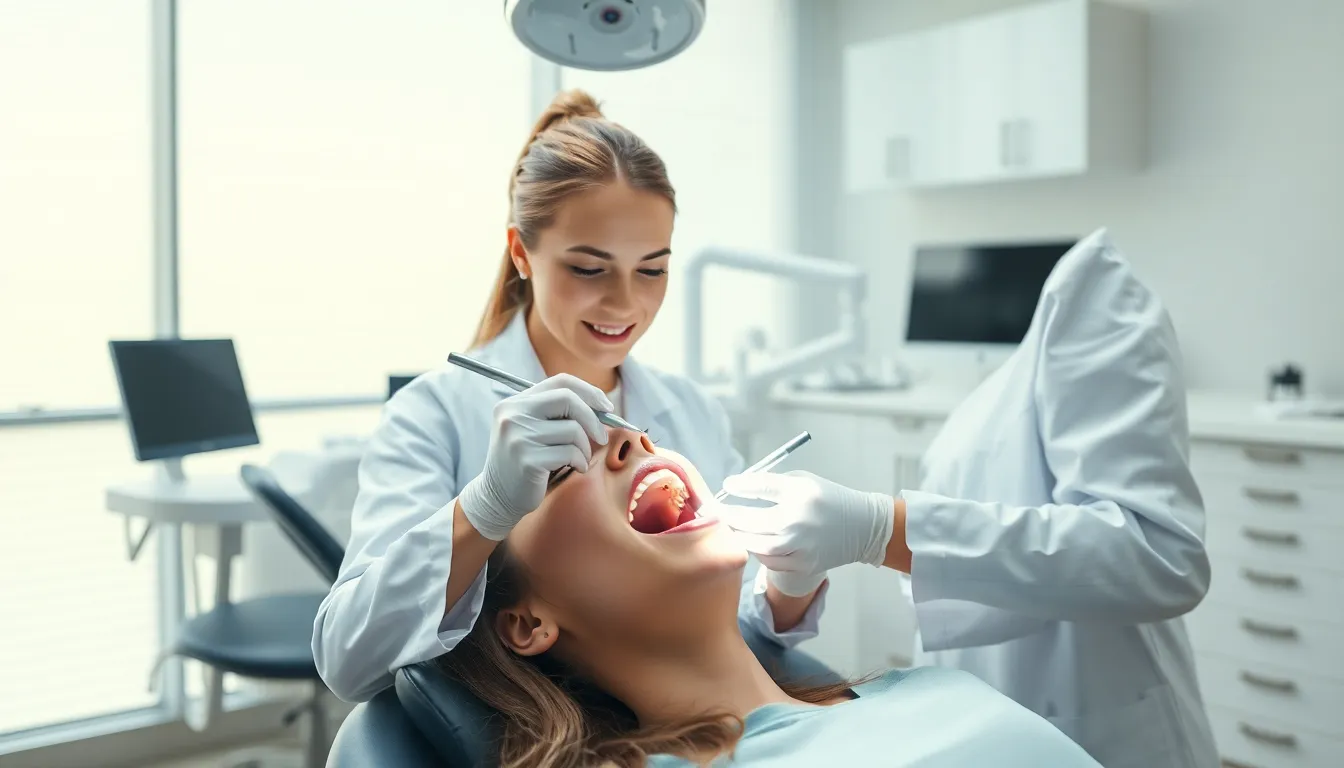
Dental emergencies involving chipped teeth require prompt professional attention to prevent complications and preserve your oral health. Knowing exactly when to contact your dentist can make the difference between saving or losing a damaged tooth.
Severe Pain or Bleeding
Intense pain following a tooth chip demands immediate dental care, as it often indicates damage to the tooth’s inner pulp containing nerves and blood vessels. Bleeding around a chipped tooth suggests injury to the surrounding gum tissue or deeper dental structures. Dr. Harris recalls treating a patient who ignored persistent bleeding around a chipped molar, leading to a serious infection that required root canal therapy. “Pain is your body’s warning system,” says Dr. Harris. “When it comes to dental injuries, that warning shouldn’t be ignored.”
Exposed Inner Tooth Layers
Contact your dentist right away if your chip exposes yellowish dentin or reddish pulp beneath the white enamel. These exposed inner layers create pathways for bacteria to enter the tooth, potentially causing infection and severe pain. The deeper the chip, the more urgent the situation becomes. Sensitivity to temperature or air indicates exposed dentin tubules connected to the nerve, signaling a serious chip requiring professional evaluation.
Loose or Displaced Teeth
Any tooth that feels loose or shifted from its normal position after trauma needs immediate professional assessment. Even slight mobility can indicate damage to the periodontal ligament or underlying bone structure. A patient in Dr. Harris’s practice experienced a seemingly minor sports injury that left a front tooth slightly loose—within days, the tooth had darkened, signaling internal bleeding and nerve damage that could have been prevented with prompt treatment.
Sharp Edges Causing Tissue Damage
Jagged edges from chipped teeth can lacerate your tongue, cheeks, or lips, creating painful sores and increasing infection risk. These sharp fragments might also break off further, complicating eventual restoration. Dr. Harris recommends covering sharp edges with dental wax as a temporary measure while heading to your dentist’s office.
Difficulty Chewing or Bite Misalignment
Seek immediate care if you experience difficulty chewing or notice changes in how your teeth fit together after chipping a tooth. Altered bite mechanics can lead to jaw pain, headaches, and additional dental damage. “Even small chips can dramatically change how your teeth function together,” explains Dr. Harris. “The sooner we restore proper form, the less likely you’ll develop compensatory problems elsewhere in your mouth.”
Conclusion
Protecting your teeth from chipping requires a proactive approach that combines daily habits with professional care. By avoiding hard foods avoiding using teeth as tools and wearing protective gear during high-risk activities you can significantly reduce your risk of dental damage.
Don’t underestimate the importance of addressing teeth grinding with a custom nightguard and managing stress to prevent unnecessary pressure on your enamel. Remember that regular dental checkups are your first line of defense in identifying weaknesses before they become chips.
When chips do occur seek immediate dental attention to prevent complications. With consistent care and the right preventive measures you’ll maintain not just a beautiful smile but strong healthy teeth for years to come.
Frequently Asked Questions
What causes teeth to chip?
Teeth chip when excessive force overcomes tooth enamel strength. Common causes include biting hard objects (ice, popcorn kernels), sports injuries, falls, and teeth grinding (bruxism). Even everyday activities can lead to chips – one patient chipped a front tooth while eating a salad. Despite enamel being the hardest substance in your body, it has limitations and can fracture under pressure.
What factors increase the risk of chipped teeth?
Risk factors include poor dental hygiene, consumption of acidic foods and beverages, existing tooth decay, previous dental work, and age-related enamel thinning. Structural abnormalities, misaligned teeth, and nutritional deficiencies can also compromise enamel strength. Teeth grinding (bruxism) significantly increases chip risk, especially during sleep when grinding forces can be intense.
How can I prevent chipping my teeth?
Adopt these protective habits: only chew food (avoid non-food items), don’t use teeth as tools for opening packages, wear mouthguards during sports and night guards for teeth grinding, maintain a diet rich in calcium and vitamin D, practice proper brushing and flossing, and attend regular dental check-ups. Limit consumption of sugary and acidic foods that weaken enamel.
How does bruxism affect tooth integrity?
Teeth grinding and clenching (bruxism) place excessive pressure on teeth, significantly increasing chip and fracture risk. This habit, often occurring during sleep, can gradually weaken enamel and create microfractures that eventually lead to chips. Using a custom-fitted nightguard creates a protective barrier between upper and lower teeth, distributing grinding pressure and preventing damage.
When should I seek immediate dental help for a chipped tooth?
Seek urgent dental care if you experience severe pain or bleeding, exposure of inner tooth layers (yellow dentin or pink pulp), loose or displaced teeth, sharp edges causing tissue damage, or difficulty chewing/bite misalignment. Delaying treatment can lead to complications including infection, further damage, and more extensive (and expensive) treatment requirements.
Can professional dental treatments prevent chipped teeth?
Yes. Regular dental visits help detect weakened enamel, early decay, or small cracks before chips occur. Professional cleanings remove plaque that erodes enamel. Dentists can also provide preventive treatments like dental bonding, veneers, and crowns to strengthen vulnerable teeth. These professional interventions complement daily oral hygiene routines, creating a comprehensive protection strategy.
How does diet affect tooth strength?
Diet significantly impacts enamel strength. Calcium, vitamin D, and phosphorus help maintain strong teeth, while acidic and sugary foods/beverages erode enamel over time. Acidic substances like citrus fruits, soda, and wine can soften enamel temporarily, making teeth more susceptible to damage. Maintain a balanced diet and rinse with water after consuming acidic items to help neutralize acid exposure.
Can damaged enamel repair itself?
Unlike other tissues, enamel cannot regenerate once damaged as it contains no living cells. However, early-stage demineralization can be partially reversed through fluoride treatments and proper oral hygiene. Once a tooth is chipped, professional dental intervention is necessary to repair the damage and prevent further complications like sensitivity, decay, or infection.

